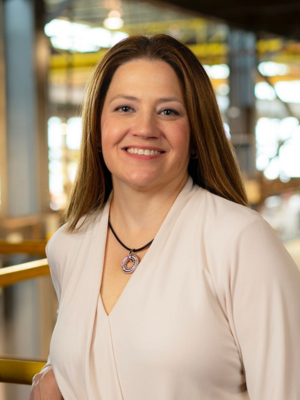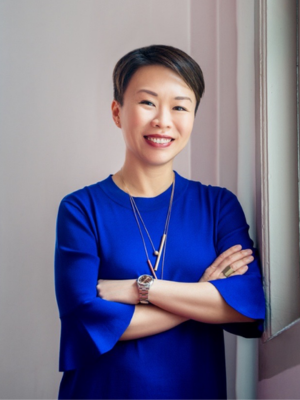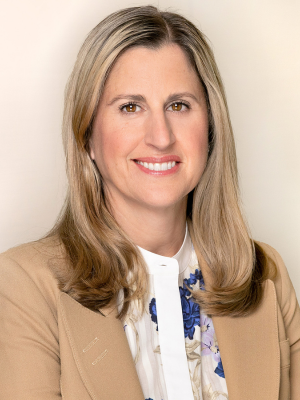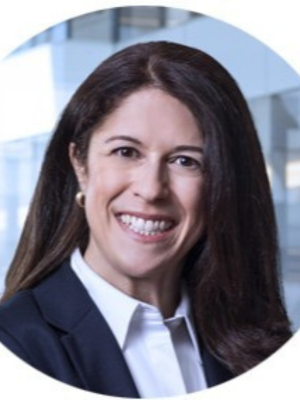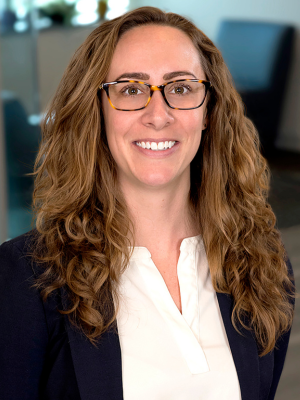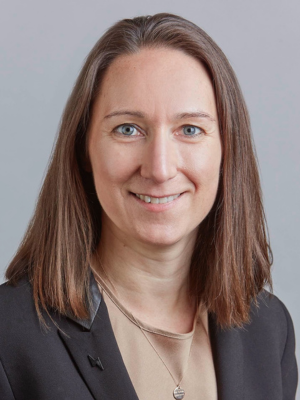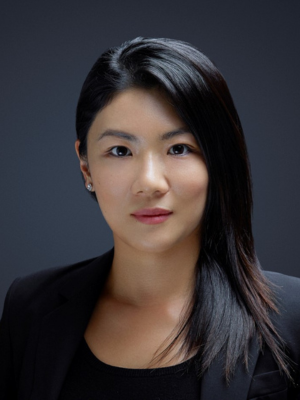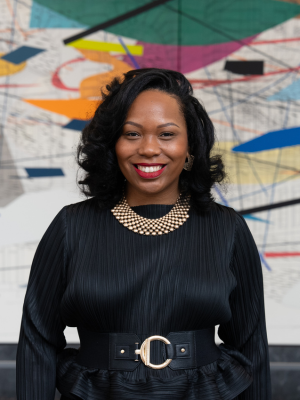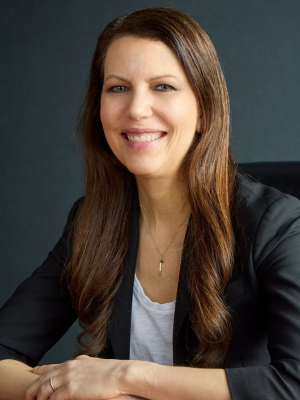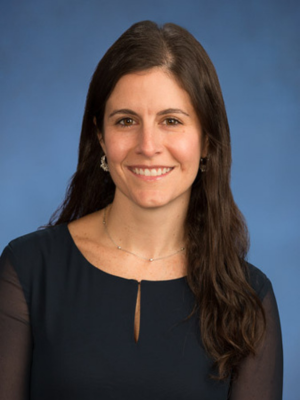 “Careers are not linear, and there isn’t a one size fits all approach. I think the key is to find the balance that works for you professionally and personally. If I had tried to predict what the next five years of my career would have been at any single point in time, I would have been completely wrong,” says Yasmine Coupal, a partner in Investment Banking, Goldman Sachs. “I thought I was joining Goldman Sachs for two years, and here I am, 20 years later.”
“Careers are not linear, and there isn’t a one size fits all approach. I think the key is to find the balance that works for you professionally and personally. If I had tried to predict what the next five years of my career would have been at any single point in time, I would have been completely wrong,” says Yasmine Coupal, a partner in Investment Banking, Goldman Sachs. “I thought I was joining Goldman Sachs for two years, and here I am, 20 years later.”
Coupal’s career is a testament to the power of embracing the unexpected. Born and raised in Venezuela, she initially set her sights on economic development, education policy in particular, planning to return to Latin America after completing undergraduate and graduate degrees in Economics and International Policy at Stanford. But a surprising detour into finance changed everything.
After graduation, a friend who was working at Goldman Sachs recommended she interview for a role on the Latin America credit team and Coupal was impressed with the people she interviewed with.
“It was too compelling of an offer to pass up, even though it meant adjusting my plans to return to Venezuela to be with my then boyfriend, now husband of 19 years.” She remembers, “long story short, I took the job in 2004, and he moved to New York instead.”
Yasmine thrived at Goldman as an analyst on the Latin America and Natural Resources credit risk team. Coupal states that she loved to travel across the region and while on a business trip in Argentina in 2007, she met a VP that ultimately convinced her to join the capital markets team as an associate. She then shifted her coverage from Latin America to domestic industrial companies.
“I wasn’t looking for a move, but I knew it was time for a challenge and to try something new.”
It was Coupal’s unwavering openness to new challenges that propelled her advancement from an internal facing role in Credit Risk to a client facing role in Capital Markets. However, it was the personal decision to relocate to San Francisco with her husband that proved to be a turning point in her career. Taking the risk to leave the financial hub of New York and follow her heart, Coupal found herself in the midst of Silicon Valley’s booming tech scene. Leveraging her unique position of being on the ground to meet with large cap tech clients, Coupal built relationships, knowledge and experience with TMT (Technology, Media and Telecommunications) clients while still very much covering her sector of industrial and real estate companies for the bank.
Ultimately, when the Managing Director for TMT debt capital markets retired in 2014, Coupal raised her hand and was selected to lead the team due to the strong relationships she had built with clients on the West Coast. In fact, she made Managing Director in 2015 and in 2018, the firm officially created the West Coast Financing Team. Along with Will Connelly, Coupal was named Co-Head and after growing and guiding the team through the pandemic, Yasmine made partner in 2020.
She reflects, “there will be moments in your career when you’ll need to make decisions based on what aligns with your professional goals and then there are moments when personal priorities are more important. Sometimes it involves taking risks, even when the outcome is uncertain. Ultimately, finding the right balance that works for you is key.”
Never one to get too comfortable, Coupal made another bold move two years later in 2022, stepping into an investment banking role where she leads coverage of large cap technology companies. Driven by her constant quest for growth and her ability to turn every opportunity into a success, Coupal is excited to keep pushing her boundaries and challenge herself as she continues as a leader at Goldman Sachs.
Investing in Relationships
When Coupal first interviewed at Goldman, it was the people she met who ignited her excitement about joining the firm. Even today, the connections she built at the firm throughout her career remain a driving force in her sense of fulfillment at work as she notes, “you’re not going to really love the job or be successful if you don’t like the people that you work with.”
In addition to making the work more enjoyable, building relationships also expands one’s network. Coupal advocates for taking the time and effort to establish those connections, particularly through in-person opportunities like meeting for coffee.
“You need to invest in your network. It’s important to have a goal of setting up an in-person catch up with someone that you work with every single week because it allows for people to get to know you as a person, so that you’re not just a name on the other side of an email.”
The value of investing that time is multifold as it creates a sense of support, opens opportunities to learn from others, and engenders loyalty to each other and the firm.
“As people understand your interests, give you feedback and see that you’re performing, you automatically get new opportunities. It becomes this reciprocal cycle that leads to success,” says Coupal. “It’s also the glue that keeps people at the firm. One of the reasons I’ve stayed so long is because I have people that I admire who have invested in me. It creates a sense of loyalty.”
Mentorship is Reciprocal
In thinking about the significance of finding inspiration and support, Coupal points to one of her mentors, Susie Scher, as pivotal to her leadership development.
Coupal shares, “Susie was instrumental in my growth at Goldman Sachs from the associate level to Vice President, Managing Director and ultimately, Partner. In essence, she saw me grow up at Goldman Sachs. She is someone who identified my talent, invested in it, and was courageous enough to give me a lot of responsibility.”
Having the experience of a mentor who believed in her engenders a deep commitment for Coupal to pay it forward and be that support for others.
“It begins with how I develop my team and invest in them, placing a strong emphasis on feedback. I focus on building genuine relationships, getting to know who they are, their skills, their ambitions, and identifying the potential in them that they may not yet have recognized.”
Extending her influence beyond her direct reports, Coupal participates in formal mentorship programs at Goldman while also being open to informal connections when people reach out to her for guidance. In either circumstance, Coupal emphasizes, “mentoring is a two-way relationship, it requires both sides to equally invest. I might want to mentor as many people as I can, but if the other side is not reciprocating and wanting to develop that relationship, there’s only so far that I can go.”
Reflecting on where sponsorship fits within the framework of support and building relationships, Coupal believes that mentorship and sponsorship go hand in hand as the roles can shift and change as people move through the firm.
“It’s fluid. A mentor can become a sponsor, or vice versa, but the key to success lies not just in getting to know you personally, but in working with you. It’s that combination that makes the relationship most effective.”
Champion your Uniqueness
In addition to being an avid mentor and sponsor, Coupal supports diversity and inclusion efforts, participating in speaking engagements and hosting sessions that provide an opportunity for female talent at the firm to talk candidly about their experiences. One theme that she strives to convey to junior analysts is, “be your genuine self. Don’t try to be someone else. Don’t try to fit a mold that you think is the key to success.”
As a Latina woman excelling in the financial industry, Coupal speaks to how she champions her uniqueness and sees it as an asset.
“Being a subject matter expert while being a woman and Latina differentiates me, makes me unique and memorable, and many times allows me to connect with clients on a different level. Establishing these deep connections and trust has been critical in my career and allowed me to build and foster relationships I wouldn’t have had otherwise.”
Beyond recognizing the power of authenticity, Coupal emphasizes that adaptability and a willingness to step outside one’s comfort zone are instrumental to career development.
“Success in one stage of your career may not guarantee success in the next. Staying humble, seeking advice, thinking ahead, and remaining flexible when plans change is key.”
She continues, “be comfortable being uncomfortable. When you start feeling too comfortable, it’s a signal to challenge yourself with something new. It keeps you on your toes and ensures continuous growth.”
Outside of work, Coupal is eager to instill in her children the same curiosity and openness to new experiences that have shaped her own journey, especially through travel. “One of our greatest joys is taking our kids to explore different countries, cultures, and cuisines,” she says. Passionate about family time, Coupal loves spending weekends cheering at soccer games or unwinding together with a backyard barbecue.
By Jessica Robaire

